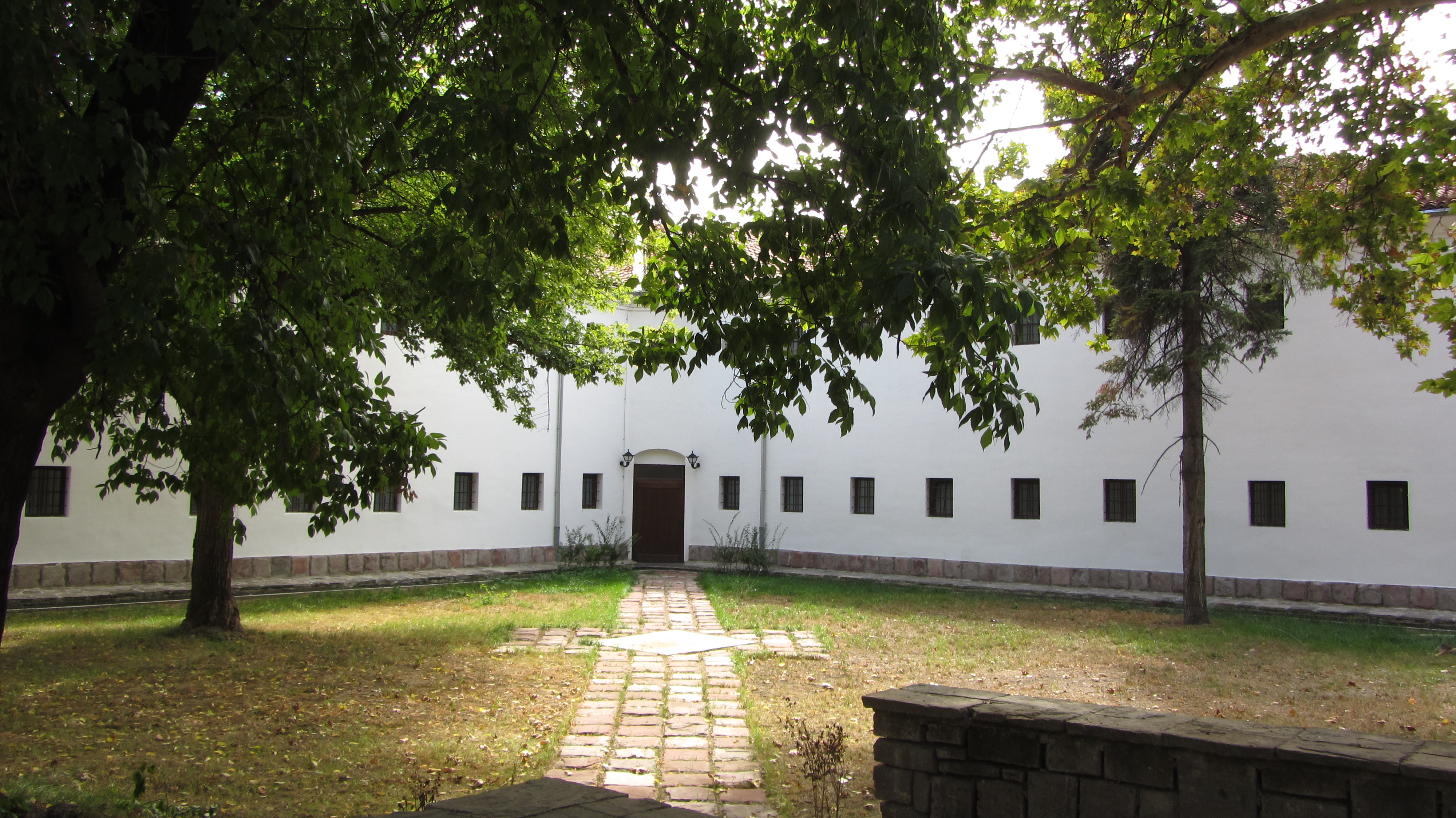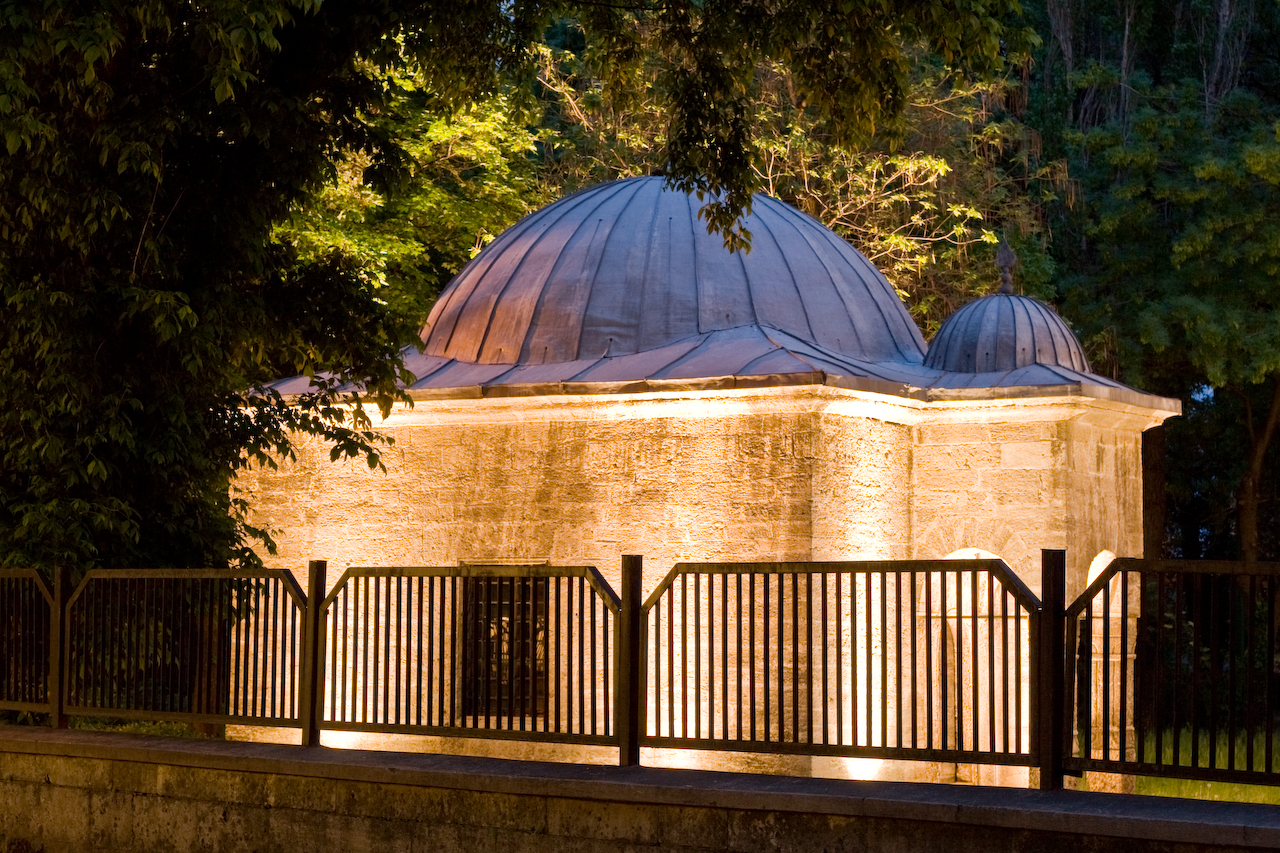Osman Pazvantoğlu on:
[Wikipedia]
[Google]
[Amazon]
Osman Pazvantoğlu (1758 – January 27, 1807 in Vidin) was an Ottoman soldier, governor of Vidin after 1794, and a rebel against Ottoman rule.
He is also remembered as the friend of Rigas Feraios, a 
 The 1797 military expedition of Hüseyin Küçük (having 100,000 soldiers) failed in its goal to conquer Vidin and capture Pazvantoğlu, and indirectly resulted in the fall and execution of Prince Constantine Hangerli, after Küçük accused him of not having provided the Ottoman Army with enough funds. He also attempted to annex the Sanjak of Smederevo but was stopped by Stanko Arambašić and his 16,000 Serbian soldiers in Ottoman service. In 1799, the Ottoman sultan forgave Pazvantoğlu's rebellion and agreed to make him a
The 1797 military expedition of Hüseyin Küçük (having 100,000 soldiers) failed in its goal to conquer Vidin and capture Pazvantoğlu, and indirectly resulted in the fall and execution of Prince Constantine Hangerli, after Küçük accused him of not having provided the Ottoman Army with enough funds. He also attempted to annex the Sanjak of Smederevo but was stopped by Stanko Arambašić and his 16,000 Serbian soldiers in Ottoman service. In 1799, the Ottoman sultan forgave Pazvantoğlu's rebellion and agreed to make him a

 In Vidin,
In Vidin,
Povestea lui Pazvante ChioruPazvantoglu.com
{{DEFAULTSORT:Pazvantoglu, Osman 1758 births 1807 deaths 18th-century Ottoman military personnel 19th-century Ottoman military personnel People from the Ottoman Empire of Bosnian descent Rebels from the Ottoman Empire Ottoman mercenaries Pashas Ottoman period in the history of Bulgaria Ottoman period in Romania History of Wallachia People from Vidin History of Vidin Rigas Feraios Kirdzhalis
Greek
Greek may refer to:
Greece
Anything of, from, or related to Greece, a country in Southern Europe:
*Greeks, an ethnic group.
*Greek language, a branch of the Indo-European language family.
**Proto-Greek language, the assumed last common ancestor ...
revolutionary poet, whom he tried to rescue from the Ottoman authorities in Belgrade.
Biography
His grandfather was originally from the Eyalet of Bosnia, and part of the guards of the city ofSofia
Sofia ( ; bg, София, Sofiya, ) is the Capital city, capital and List of cities and towns in Bulgaria, largest city of Bulgaria. It is situated in the Sofia Valley at the foot of the Vitosha mountain in the western parts of the country. ...
, hence Osman's name: ''pasban-oğlu'', "son of the guard".Ionescu, p.242 Initially a mercenary in service to the Wallachian prince Nicholas Mavrogenes, Osman Pazvantoğlu disobeyed the latter on one occasion, and was saved from reprisals through Feraios' intervention.
Having gathered a large army of mercenaries, he rebelled against the Ottoman sultan
The sultans of the Ottoman Empire ( tr, Osmanlı padişahları), who were all members of the Ottoman dynasty (House of Osman), ruled over the transcontinental empire from its perceived inception in 1299 to its dissolution in 1922. At its he ...
Selim III, and, acting as an independent ruler, he minted his own coins and had diplomatic relations with foreign states (including the French Republic). In 1798, he held territories which spread from the Danube to the Balkan Mountains and from Belgrade to Varna. In 1793, he undertook a military expedition to the Pashaluk of Belgrade but was soundly defeated by the Serbs in Ottoman service at the Battle of Kolari
A battle is an occurrence of combat in warfare between opposing military units of any number or size. A war usually consists of multiple battles. In general, a battle is a military engagement that is well defined in duration, area, and force ...
.
 The 1797 military expedition of Hüseyin Küçük (having 100,000 soldiers) failed in its goal to conquer Vidin and capture Pazvantoğlu, and indirectly resulted in the fall and execution of Prince Constantine Hangerli, after Küçük accused him of not having provided the Ottoman Army with enough funds. He also attempted to annex the Sanjak of Smederevo but was stopped by Stanko Arambašić and his 16,000 Serbian soldiers in Ottoman service. In 1799, the Ottoman sultan forgave Pazvantoğlu's rebellion and agreed to make him a
The 1797 military expedition of Hüseyin Küçük (having 100,000 soldiers) failed in its goal to conquer Vidin and capture Pazvantoğlu, and indirectly resulted in the fall and execution of Prince Constantine Hangerli, after Küçük accused him of not having provided the Ottoman Army with enough funds. He also attempted to annex the Sanjak of Smederevo but was stopped by Stanko Arambašić and his 16,000 Serbian soldiers in Ottoman service. In 1799, the Ottoman sultan forgave Pazvantoğlu's rebellion and agreed to make him a pasha
Pasha, Pacha or Paşa ( ota, پاشا; tr, paşa; sq, Pashë; ar, باشا), in older works sometimes anglicized as bashaw, was a higher rank in the Ottoman political and military system, typically granted to governors, generals, dignita ...
.
Pazvantoğlu often made violent raids in Wallachia
Wallachia or Walachia (; ro, Țara Românească, lit=The Romanian Land' or 'The Romanian Country, ; archaic: ', Romanian Cyrillic alphabet: ) is a historical and geographical region of Romania. It is situated north of the Lower Danube and s ...
, where he often set on fire the cities which he plundered. In 1800, his troops, colloquially known as ''pasvangii'', set on fire a large portion of the city of Craiova: out of 7,000 houses, only around 300 were still standing after the fire stopped. This caused Prince Alexander Mourousis
Alexander Mourouzis ( el, Αλέξανδρος Μουρούζης; Romanian: Alexandru Moruzi (1750/1760 – 1816) was a Grand Dragoman of the Ottoman Empire who served as Prince of Moldavia and Prince of Wallachia. Open to Enlightenment ideas ...
to hand in his resignation to Sultan Selim, a rare statement of defeat in the context of Phanariote reigns.
In late January 1802, Bucharest
Bucharest ( , ; ro, București ) is the capital and largest city of Romania, as well as its cultural, industrial, and financial centre. It is located in the southeast of the country, on the banks of the Dâmbovița River, less than north ...
was gripped by panic after rumors spread that the pasha had sent his army in its direction. Prince Michael Soutzos left the city and ordered its defense by the remaining garrison of Albanians, but disagreements over payment owed led the troops themselves to discard the place; the city soon fell to widespread disorder and the brief rule of beggars and vagabonds (who apparently mimicked a coronation ceremony) — this episode was ended by the violent intervention of Ottoman troops stationed in the vicinity, and ultimately led to Soutzos' deposition.Djuvara, p.283
In 1809, retaliation campaign of Oltenian ''hajduk
A hajduk ( hu, hajdúk, plural of ) is a type of irregular infantry found in Central and parts of Southeast Europe from the late 16th to mid 19th centuries. They have reputations ranging from bandits to freedom fighters depending on time ...
s'' led by Iancu Jianu culminated in the attack and partial destruction of Turnu Măgurele (which was officially administered as an Ottoman ''kaza
A kaza (, , , plural: , , ; ota, قضا, script=Arab, (; meaning 'borough')
* bg, околия (; meaning 'district'); also Кааза
* el, υποδιοίκησις () or (, which means 'borough' or 'municipality'); also ()
* lad, kaza
, ...
'', but had become a base for the rebellion leader).
Pazvantoğlu's incursions soon became infamous in all of Wallachia. The expression "as in the time of ''Pazvante Chioru' ''", rather common in Romanian, was meant to indicate a time of trouble and ill-government; in time, it simply came to mean "extremely old".
Legacy
 In Vidin,
In Vidin, Bulgaria
Bulgaria (; bg, България, Bǎlgariya), officially the Republic of Bulgaria,, ) is a country in Southeast Europe. It is situated on the eastern flank of the Balkans, and is bordered by Romania to the north, Serbia and North Mac ...
, the capital of Pazvantoğlu's domain, there are several landmarks built during his rule that still stand today. These include the military facility Krastata Kazarma
The Krastata Kazarma ( bg, Кръстата казарма, ''cross-shaped barracks'') is a former military facility of the Ottoman Empire. The barracks got its name due to its cross-shaped architecture. It is one of the cultural memorials of the r ...
(from Bulgarian: Cross-shaped Barracks), built in 1801, and a mosque (1801-1802) with a library building (1802–1803), dedicated to the pasha's father. All of them are classed as monuments of culture.
The mosque-library compound is thought to have also included a madrasah
Madrasa (, also , ; Arabic: مدرسة , pl. , ) is the Arabic word for any type of educational institution, secular or religious (of any religion), whether for elementary instruction or higher learning. The word is variously transliterated '' ...
( Islamic school) and a small Muslim cloister, both of which have not survived until today.
Notes
References
*Neagu Djuvara
Neagu Bunea Djuvara (; 18 August 1916 – 25 January 2018) was a Romanian historian, essayist, philosopher, journalist, novelist, and diplomat.
Biography
Early life
A native of Bucharest, he was descended from an aristocratic Aromanian family ...
, ''Între Orient și Occident. Țările române la începutul epocii moderne'' ("Between Orient and Occident. The Romanian Lands at the beginning of the modern era"), Humanitas, Bucharest
Bucharest ( , ; ro, București ) is the capital and largest city of Romania, as well as its cultural, industrial, and financial centre. It is located in the southeast of the country, on the banks of the Dâmbovița River, less than north ...
, 1995
*Ștefan Ionescu, ''Bucureștii în vremea fanarioților'' ("Bucharest in the Time of the Phanariotes"), Editura Dacia, Cluj, 1974Povestea lui Pazvante Chioru
{{DEFAULTSORT:Pazvantoglu, Osman 1758 births 1807 deaths 18th-century Ottoman military personnel 19th-century Ottoman military personnel People from the Ottoman Empire of Bosnian descent Rebels from the Ottoman Empire Ottoman mercenaries Pashas Ottoman period in the history of Bulgaria Ottoman period in Romania History of Wallachia People from Vidin History of Vidin Rigas Feraios Kirdzhalis